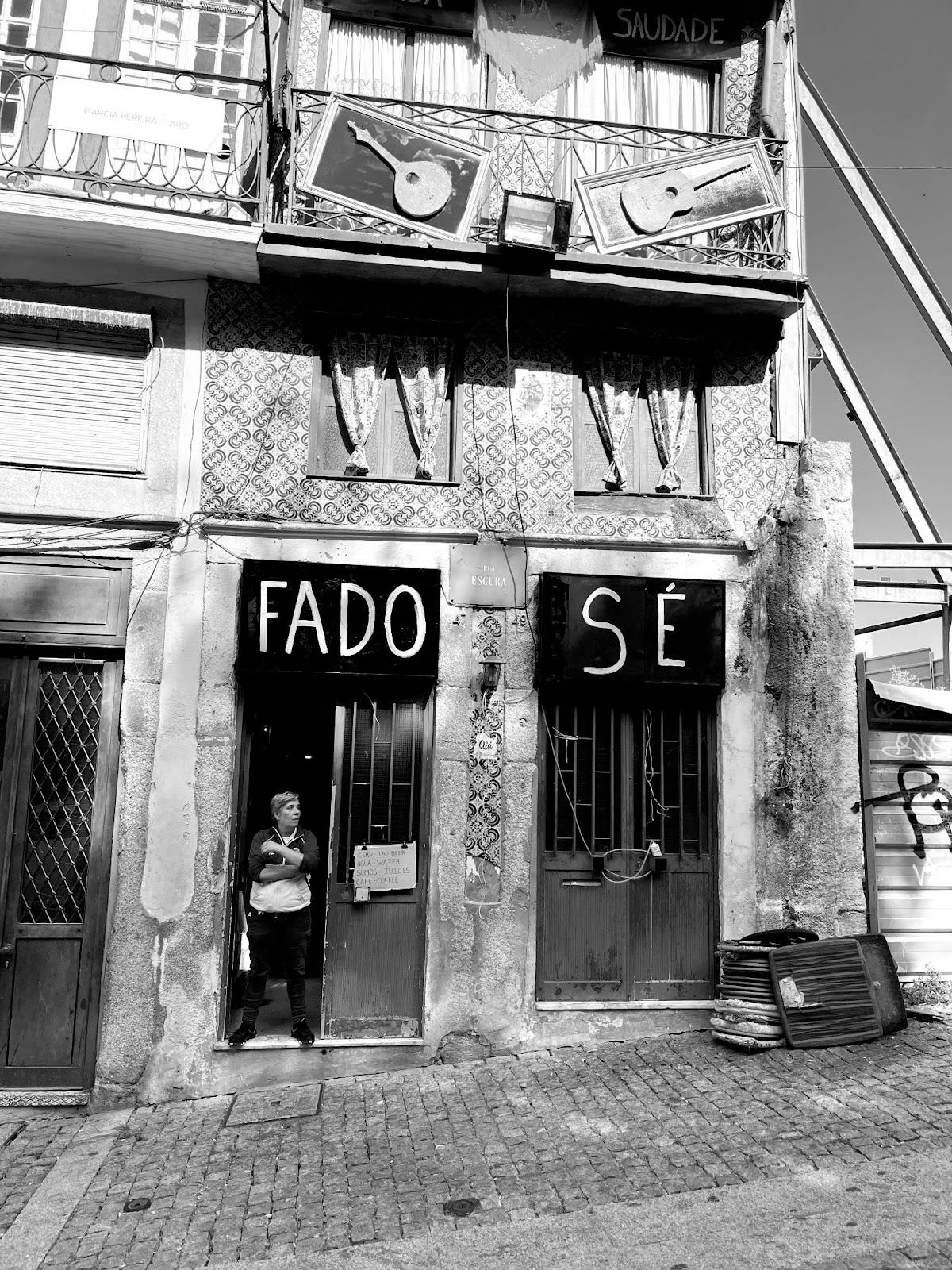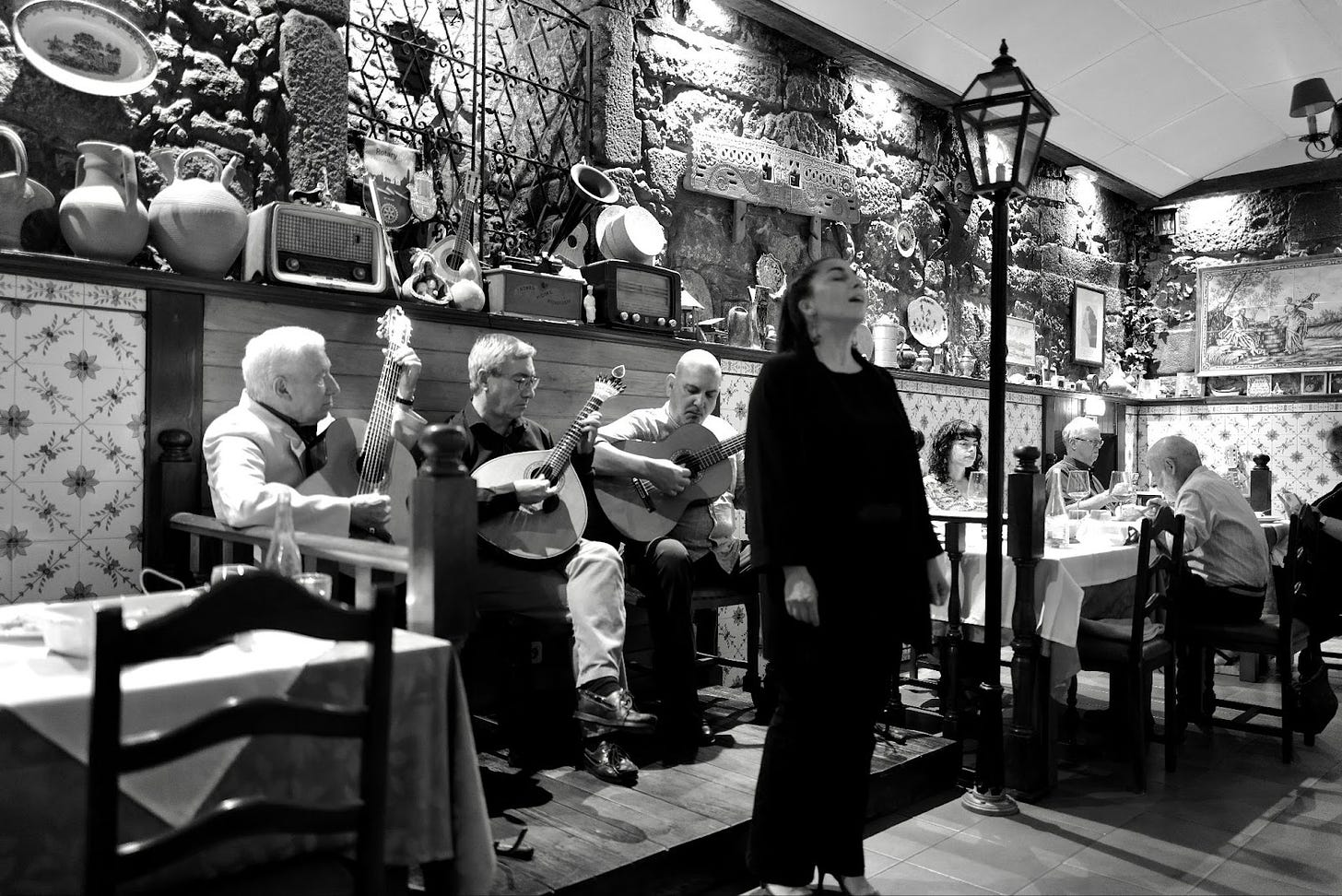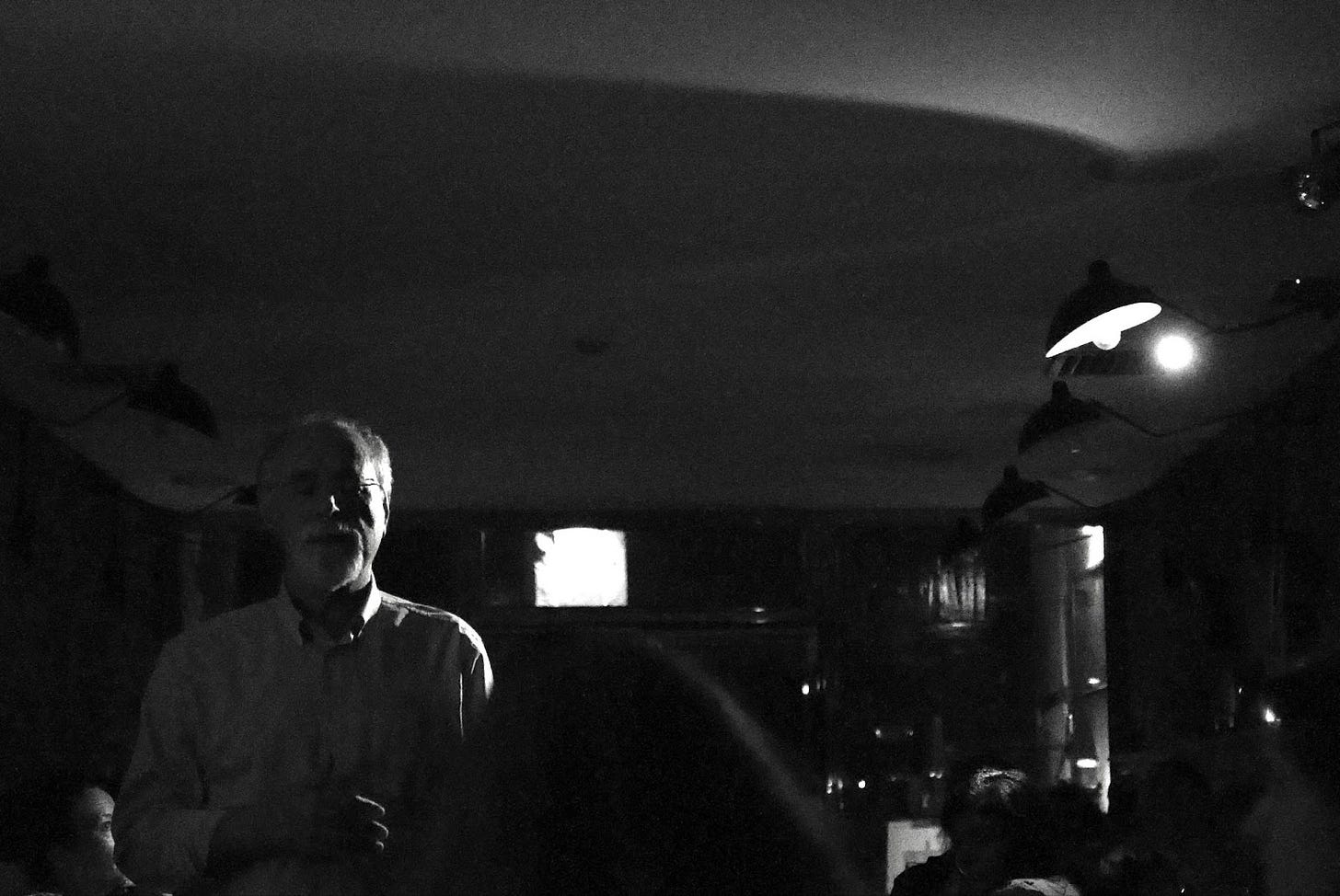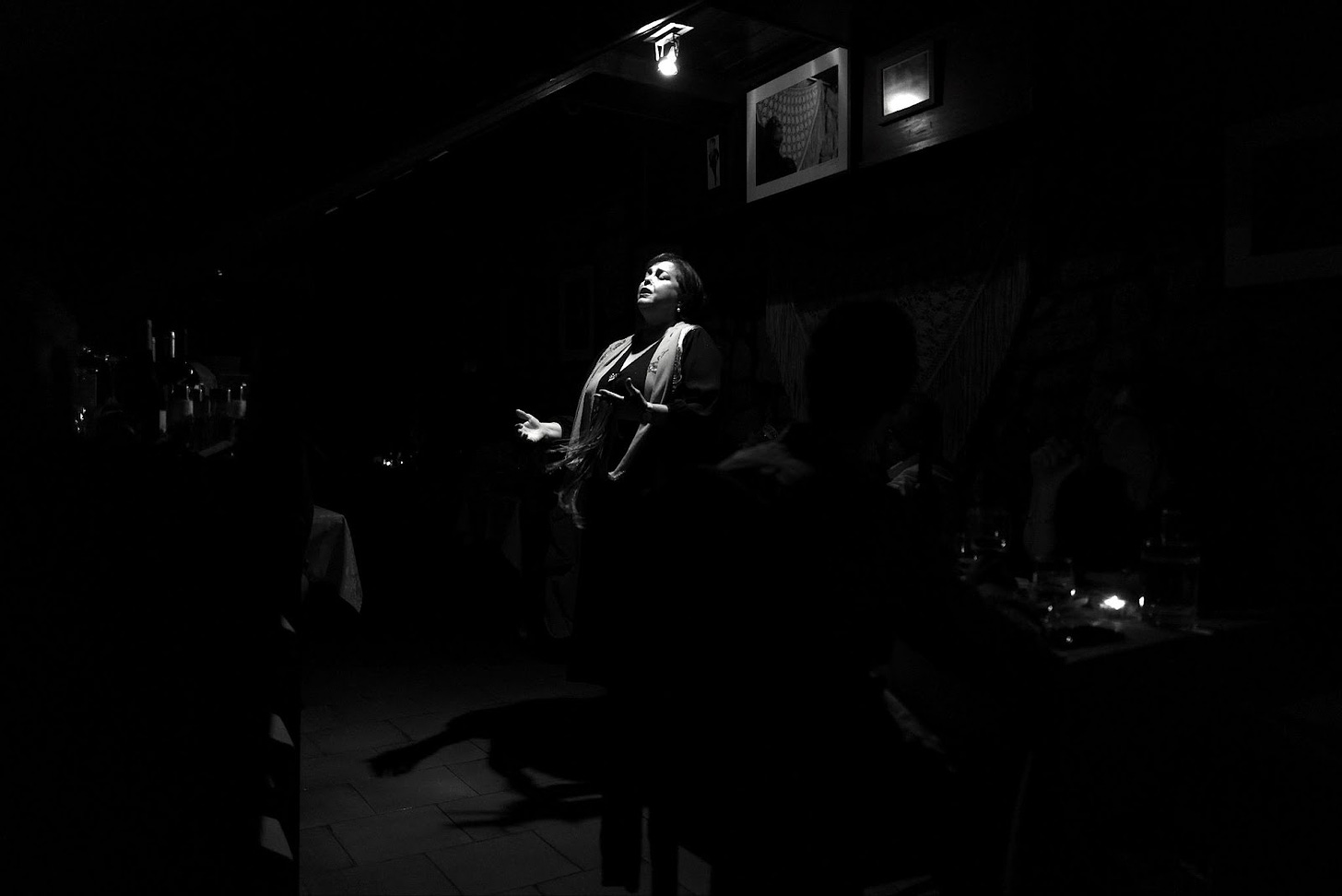Eric Matthies (EM) has worked as a director, producer, and consultant across a number of genres—from large-scale installations to major motion pictures, broadcast specials, web series, multi-platform content packages, site-based VR, world-building R&D, live events, and traditional documentaries.
Eric here. In 2017 my wife, dog, and I took a gamboling, rambling road trip from Barcelona up into the Cote de Basque, then across Galicia before dropping down and passing through Portugal as we made our way back to BCN. In Lisbon, we stumbled across a small tavern that featured fado. After ordering some wine, we were hushed by the barkeep as he proceeded to lock the doors, dim the lights, and began to sing mournfully to an intricate twelve-string guitar. Twenty minutes later, the lights came up, the doors reopened, and we had been transformed. With zero understanding of Portuguese, we’d been completely drawn in, drowned, and reborn by the storytelling we’d just been immersed in.
WITI Classifieds:
We are experimenting with running some weekly classifieds in WITI. If you’re interested in running an ad, you can purchase one through this form. If you buy this week, we’ll throw an extra week in for free on any ad. If you have any questions, don’t hesitate to drop a line.
Another interesting newsletter: Making the case for good content, clear writing, and the creative process. Subscribe to the Hand & Eye.
Want to aggregate data from third-party servers automatically? Check out HTL Exec by HTL Inc. https://hashtag-labs.com/contact-us.html
Beats In Space with Tim Sweeney: weekly DJ mixes + interviews on Apple Music http://apple.co/beatsinspace
A publication exploring the most interesting and innovative consumer businesses, products, and trends https://newconsumer.com/
Fado, as explained by The Museo de Fado, was born in the public areas of Lisbon during the late 1800s. It is sung poetry: a spontaneous combustion of music and song recounting tales of love, loss, and, quite often, the sea.
“Evoking urban emergence themes, singing the daily narratives, Fado is profoundly related to social contexts ruled by marginality and transgression in a first phase, taking place in locations visited by prostitutes, faias, sailors, coachmen, and marialvas.”
Why is this interesting?
This year, I returned alone to Portugal, and with a few days free in Porto before the sharp end of my trip began, I sought out the fado experience again. Several venues were recommended to me, all requiring a dinner reservation and a commitment to both the meal and three progressing sets of music. Intrigued by this difference from our Lisbon experience, I selected a different restaurant for each of the nights I had available.
The first was an older spot, in a touristic area near the water across from the famed port wine district, owned by an affable family of brothers. The musicians were accomplished, though they seemed to not always be in sync with each other. I noted, and would see repeated, that the rhythm or bass player rested his chin on the upper bout of his instrument during particularly complex sequences, the better to absorb the resonance and hold tempo.
The fadistas were fantastic, their bodily gestures complimenting the tonal range of their vocals. As I came to learn over the subsequent evenings, the performances followed a pattern of sets. After the first course was served, a woman sang songs of what I felt to be loss and love. A pause to order dessert, then a man would sing of hardships and the body politic of labor. Lastly, after postres and port, the two performers would join in duet.
The second night was my favorite, with excellent food in a more modern setting and a young enthusiastic team whose passion for their establishment carried the mystique of the music forward. In fact, it was the man clearing tables and pouring wine who emerged as fadista for the second and third sets—with a stunning voice to complement his equally astonishing partner. Everyone in the house seemed to be Portuguese and looked to have their connections to the mythologies of the lyrics etched into their faces. As a bonus, a gentleman who was apparently a well-regarded elder in the art was invited to rise from his table with another song. I attempted to get his name, but it was closing time, tabs to ring up and cigarettes to roll, so I left them all to their routines and walked the silent streets back to my guest house.
On the last night, I visited what was claimed as the oldest establishment in town, which opened in 1968. I asked the proprietor where fado originated. He looked at me a bit incredulously, then with bemusement and emphasis, declared “Oporto!” So much for Lisbon. Here the doyen of the house was also the potent poetess of the second and third acts. The food was less exciting than the night prior, but the richness of history in the walls seemed to waft into her vocals and back throughout the room like a smoky melancholy that brought me to tears.
I find fado, like flamenco and other ‘folk’ music, to be a portal through which emotion flows not only from the lyrics, notes, and gestures but through the bricks and boards of the room—through us in the audience and the spacetime of the stories the performers retell. It is a sharing of history through myth, tradition, and repeated interpretation. Language becomes feeling, it is not necessary to understand the words (though it would no doubt change the experience even further). The fadista is a hakawati, powerfully taking agency in a tapestry of tales to remind us of where we might have visited in other lives past, present, and yet to be. (EM)
—
Thanks for reading,
Noah (NRB) & Colin (CJN) & Eric Matthies (EM)
—
Why is this interesting? is a daily email from Noah Brier & Colin Nagy (and friends!) about interesting things. If you’ve enjoyed this edition, please consider forwarding it to a friend. If you’re reading it for the first time, consider subscribing.









